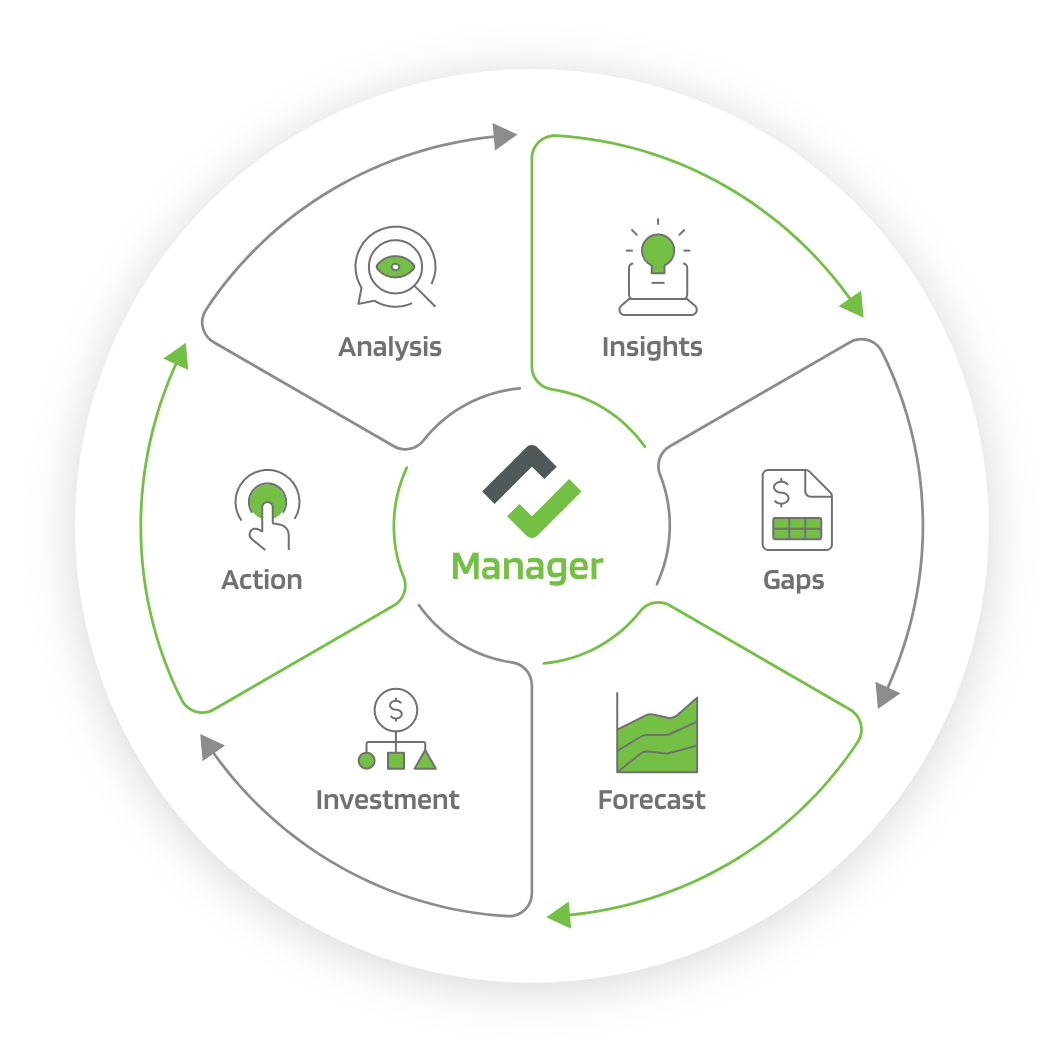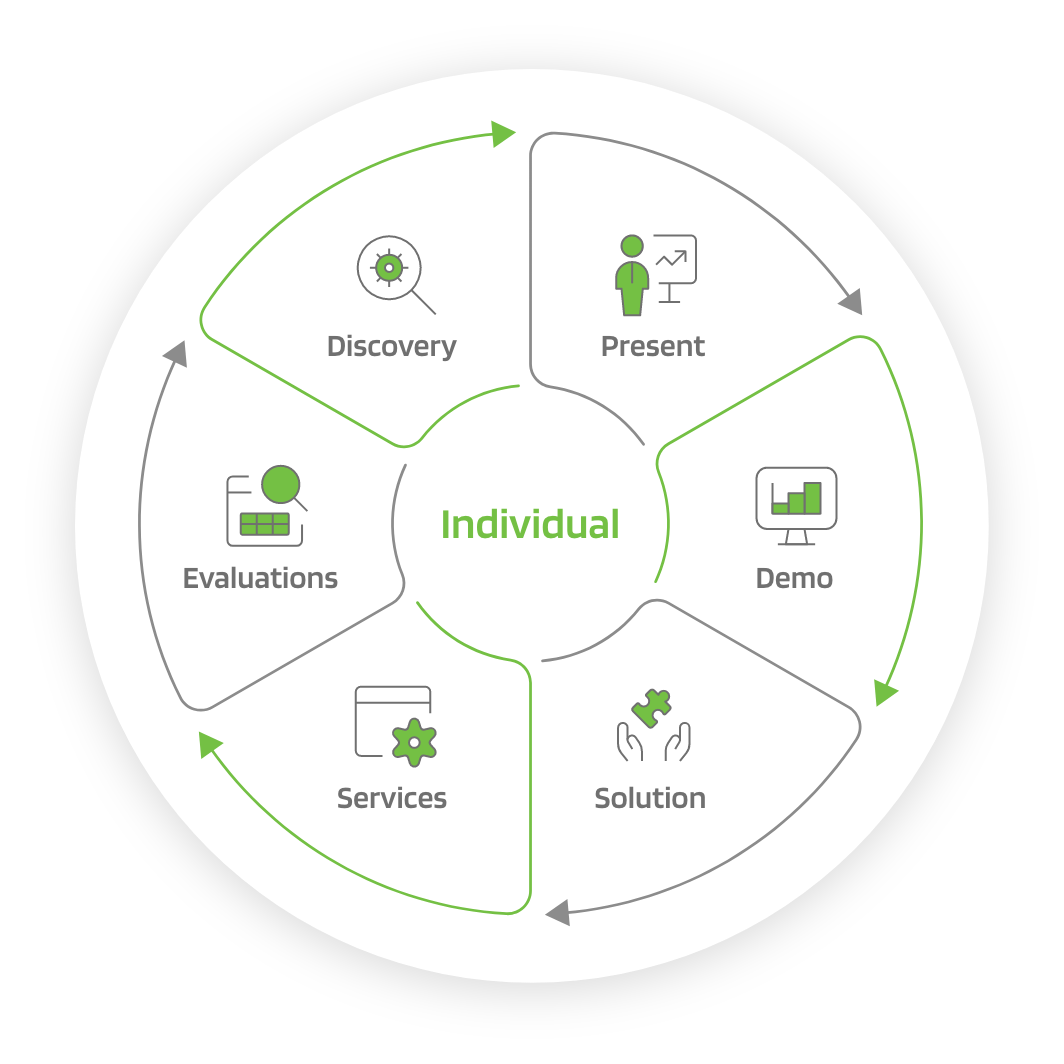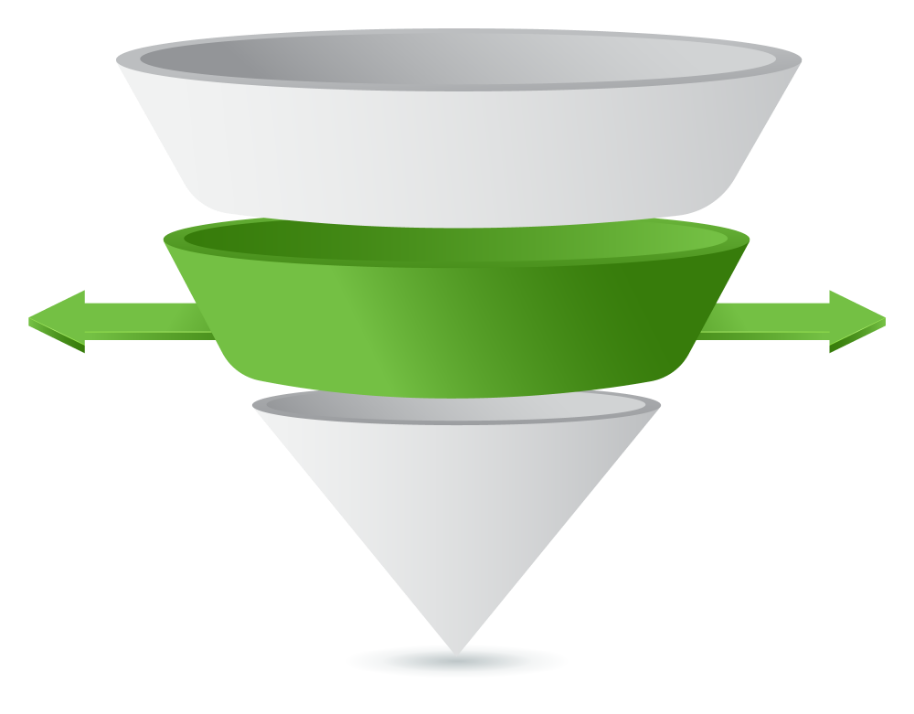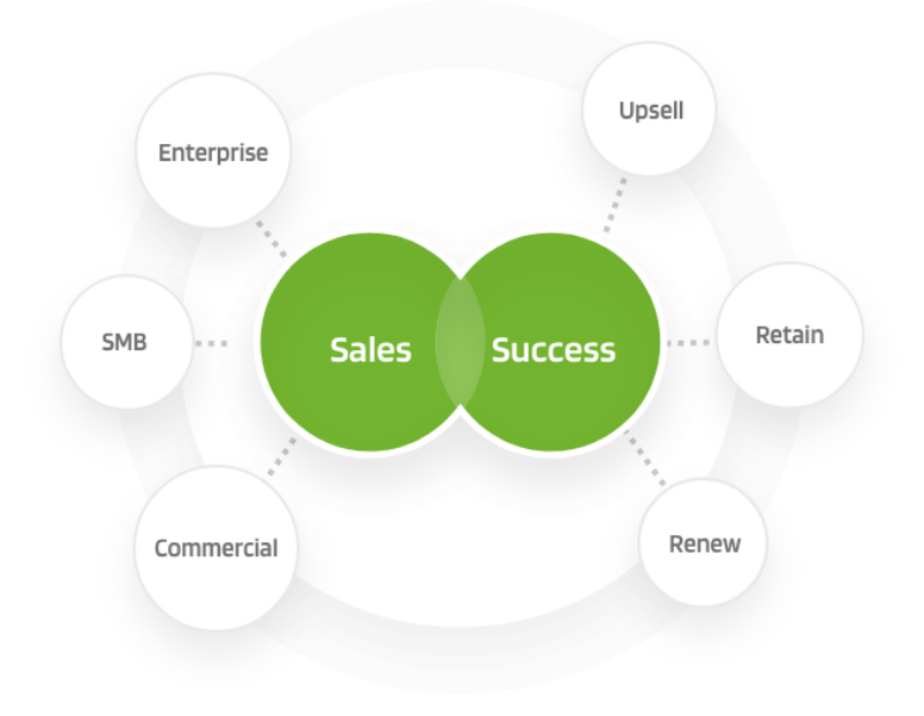
Technical Sales by Hub
Sales Engineers and Account Executives: The Key to an Effective Partnership

If you’re in SaaS or software sales, chances are good that you and your colleagues have recently attended the annual sales kickoff. It probably wasn’t like SKO’s of the past. It was probably a virtual kick off. And aside from being void of late nights at the bar with the gang, they’ve largely proven to be equally – if not more – effective. You probably heard strategic direction from the executive team and new positioning from marketing. Saw the roadmap from product and new slides from enablement. More than likely you were inundated with new sales plays, pricing, licensing models, features, functions, market trends, sales skills, best practices, quotas, targets, territories, etc. etc.
But what about how to effectively collaborate with your sales counterpart? If you’re on the sales side, this means your technical presales partner, i.e., your sales engineers (SE). If you’re on the presales side, this means your sales counterpart, i.e., your account executive (AE). For most SaaS and high-tech software companies, there is a direct correlation between the quality of these relationships and quota attainment. Which to you, means a direct impact on your personal productivity and income. And yet, the skills and team building required to develop these partnerships is often overlooked during SKO’s.
Fact is, when collaboration between AE and SE works, the result is magical. Trust is high. Communication comes naturally. Deals tend to flow smoothly. And customers can sense and feel that camaraderie. It makes the team that much more magnetic. One plus one becomes much more than two.
But what about when the relationship is a struggle? Trust is low. Communication is difficult. There’s friction in the pipeline. Customer experience diminishes. One plus one becomes less than one. And the result? Poor performance against quota. Job dissatisfaction. High turnover.
If you find yourself struggling to communicate effectively or collaborate efficiently with your sales counterpart, the journey towards a healthy, prosperous partnership begins with developing a better understanding for one another. Chances are you aren’t being understood correctly, and vice versa, you are misunderstanding your counterpart. Presales, Technical Sales professionals and those in sales engineering are fundamentally wired differently. You may think you understand your sales counterpart, but do you really? Or is it possible that you’re viewing them through the frame of how you are wired?
In a recently published guide on understanding the differences, link to guide here, we created a matrix that compares the typical AE and SE along numerous dimensions. There are exceptions of course, but as a rule of thumb, the table in the guide represents the tendencies of sales vs. sales engineers. For example, when asked a question, AE’s prefer to offer answers that will be well received by the recipient. They don’t like giving a negative response. And they tend to “round up”, leaving room for interpretation. SE’s on the other hand tend to answer with precision. Neither one is wrong, just different. What do sales professionals fear most in the context of the sale? Losing the sale, of course. As they should. What about sales engineers? The fear losing credibility. Again, neither one is wrong nor bad, just different. In fact, given their roles, both are what you would desire. As sales engineers, we want to be paired with a sales professional who is petrified of losing a deal. Tells me that they will work extremely hard. Likewise, as an AE, I want SE’s who take pride in their work – pride in themselves. However, although positives in and of themselves, they can create friction when intentions are misunderstood.
The key point is this… Account execs and sales engineers are fundamentally wired differently. When dealing with one other – when partnering together – the more they understand and remember this, the more likely the relationship will thrive. Most problems are NOT communication problems, they’re INTERPRETATION problems. It’s how we interpret what we see and what we hear, and respond to that interpretation, that creates the most friction. Be careful not to project what your motive and intent might be onto the actions and behaviors of your counterpart.
Gaining this understanding is an important start – but it’s just that – a start. A foundation if you will. Once we come to grips with this notion that the other person isn’t intentionally trying to sabotage a deal or trying to make your life difficult. That in fact, they are just operating based on their set of skills, beliefs and drivers, there’s still some work to do to turn the working relationship into a well-oiled machine.
As laid out in the guide, I encourage you to follow these three steps. One. Get your mindset right. Sales is a team sport. Opportunities wouldn’t exist without your technical sales counterpart prospecting, knocking on doors, and pursuing leads. There’s a tremendous amount of work that goes into simply getting the meeting scheduled. On the flip side, deals wouldn’t close without achieving the technical win – which is the responsibility of those in sales engineering. And no one gets paid until the deal closes, which requires collaboration and effort of both parties. Neither one of you will always be right nor wrong. Sales is a team sport, and we need to remember that our sales counterpart is on the side.
Step number two… Clarify roles and responsibilities. Take time to sit down and clarify who does what when. And do so outside the context of a specific deal – outside the heat of battle. Lay out a process and a cadence, and how you plan to execute, so that when the pressure is on you will know how to operate.
Step number three… Hold one another accountable. Once you’ve set those expectations, understand that things aren’t always going to go to plan. There are going to be exceptions. Sometimes we have to be flexible. But sometimes we also have to stand our ground and hold our sales counterparts accountable to the rules and expectations that were set. Be open to feedback and willing to be held accountable yourself. Remember, you aren’t perfect. No one is. You shouldn’t expect perfection from anyone – your sales counterpart or yourself. Sometimes, the tougher part is having the courage to hold your partner accountable – and knowing how to have difficult conversations. Which leads us to the final element of an effective, successful partnership.
Even the BEST relationships require difficult conversations. In fact, in order for a relationship to truly elevate to a level of greatness, difficult conversations must occur. It’s only way we truly grow and develop – when people we trust, and know us well, have the courage to provide sincere, honest feedback. If you aren’t having difficult conversations at least once in a while, you’re either incredibly lucky or – more likely – the relationship isn’t growing.
Question is, how do we have difficult conversations? There is much written on the topic, and I’m no expert in psychology, but in my career, I’ve used what I call the EOI framework: Expectations, Observations, Interpretation. When it’s time to have a difficult conversation start with stating your expectations. Maybe the problem is there, and you need to reset your expectations. Then state what you observed – your observation. Again, maybe what you saw or heard was different than how your colleague saw it or heard it. Many conflicts may be resolved on these two points alone. But if expectations were aligned and you both saw and heard things the same way, then move to step 3 – how you are interpreting what you observed. It’s very possible that that’s where the problem lies.
In summary, regardless of how well equipped you are individually coming out of your annual SKO, success in B2B SaaS and software sales requires effective collaboration between AEs and SEs. When trust is high and collaboration is efficient, the results are magical. But those relationships require work. Understand that you and your counterpart – more than likely – are wired very differently. Take time to understand the differences. Get your mindset right. Sales is a team sport. Clarify roles and responsibilities. Set expectations and hold each other accountable. And be willing to be held accountable. Know how to have difficult conversations following the EOI framework – Expectations, Observation and Interpretations – and have the courage to do so.
If you do these things, then maybe at next year’s SKO – when we will hopefully be back together in person – it will be you and your colleague standing on stage, accepting the award for blowing out your quota in 2021.
About Chris White
Chris White is the author of the Amazon bestselling The Six Habits of Highly Effective Sales Engineers and the founder of TechSalesAdvisors, a sales training company that delivers the most comprehensive team sales training program to the SaaS and technology industries. Their programs are designed to bridge the gap between sales and sales engineering, removing friction from the funnel and accelerating pipeline velocity.








